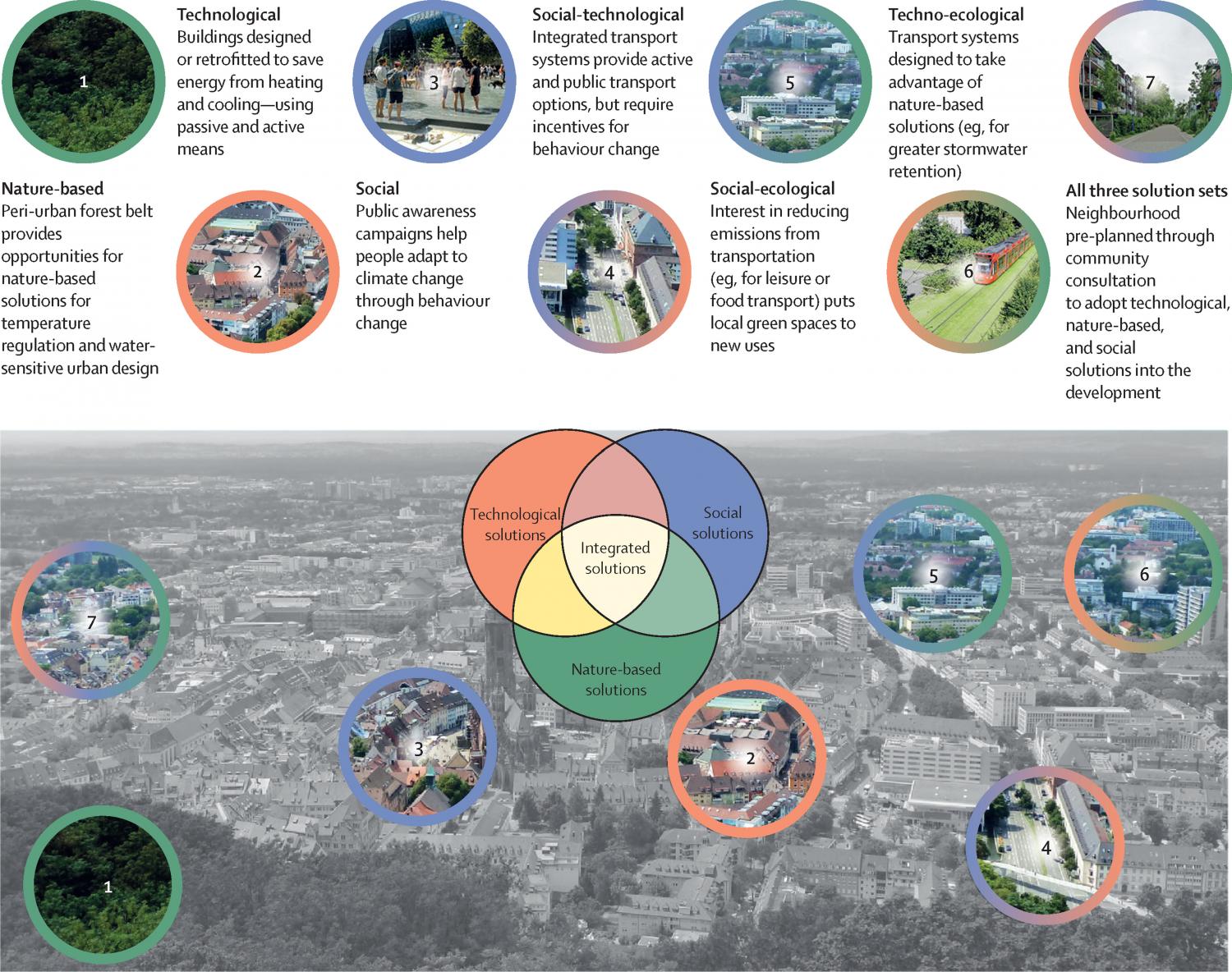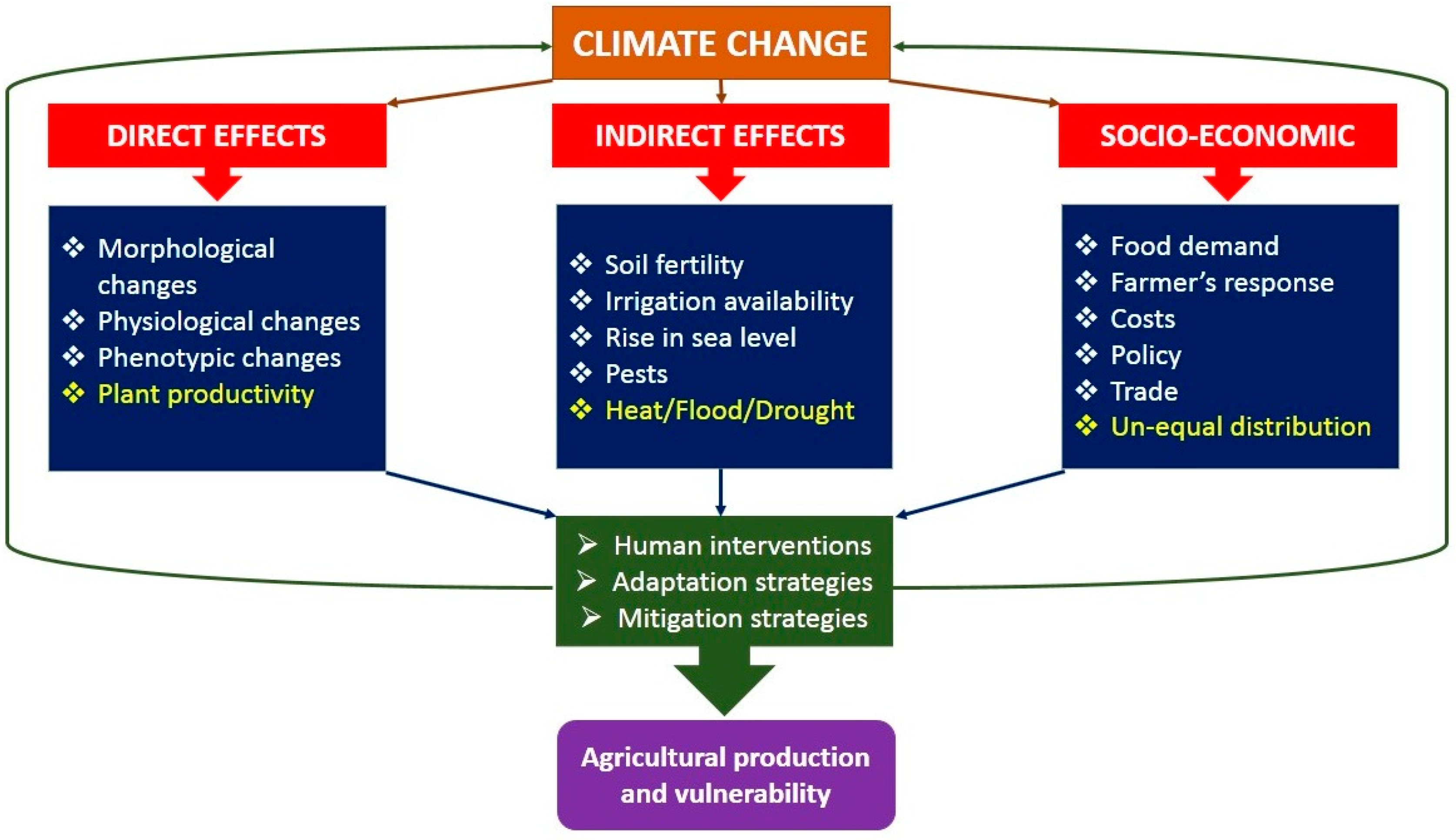Understanding Climate Change: The urgency of our time, the need to take immediate action.
In this article, we will explore Understanding Climate Change: Impacts and Mitigation Strategies. We will discuss the causes and effects of climate change, as well as the strategies that can be implemented to reduce greenhouse gas emissions and mitigate the impacts of climate change. We will also provide resources for further learning on this important topic.
| Key Differences | Key Takeaways | |
|---|---|---|
| Climate Change | - Climate change is a long-term change in the Earth's climate, typically defined as changes in temperature, precipitation, or wind patterns, lasting for decades or more. | |
| Mitigation | - Mitigation refers to efforts to reduce or prevent greenhouse gas emissions. | |
| Adaptation | - Adaptation refers to efforts to adjust to the impacts of climate change, such as by building sea walls to protect against rising sea levels. |
FAQ
This FAQ section aims to address common questions and misconceptions regarding climate change, drawing insights from Understanding Climate Change: Impacts And Mitigation Strategies.

Climate change and health / Greenstories - Source greenstories.co.in
Question 1: What is climate change and how does it differ from weather?
Climate change refers to long-term shifts in global or regional climate patterns, often attributed to human activities and the release of greenhouse gases into the atmosphere. It involves gradual changes in temperature, precipitation, and other climatic variables over extended periods, typically decades or longer. Weather, on the other hand, describes short-term atmospheric conditions and changes over hours, days, or weeks.
Question 2: What are the primary causes of climate change?
The primary cause of climate change is the release of greenhouse gases, such as carbon dioxide and methane, into the atmosphere. These gases trap heat from the sun, leading to an increase in global temperatures. Human activities, including the burning of fossil fuels, deforestation, and agriculture, contribute significantly to the emission of these gases.
Understanding climate change and its impacts is crucial for developing effective mitigation and adaptation strategies. Through research and collaboration, we can work towards a more sustainable future.
To explore further insights into climate change, continue reading the comprehensive article Understanding Climate Change: Impacts And Mitigation Strategies
Tips
Climate change poses significant risks to our planet and society. To mitigate its impacts, individuals and organizations must adopt proactive strategies. Here are a few key tips to address climate change:
Tip 1: Reduce Carbon Footprint
Assess your daily activities and identify areas where carbon emissions can be reduced. Consider using public transportation, walking, or biking instead of driving alone. Switch to energy-efficient appliances and light bulbs, and implement conservation measures such as turning off lights when leaving a room.
Tip 2: Promote Renewable Energy
Support the transition to renewable energy sources like solar, wind, and geothermal power. Advocate for policies that encourage investment in renewable infrastructure and consider installing solar panels or a wind turbine at your home or business. By reducing reliance on fossil fuels, you can contribute to a cleaner energy future.
Tip 3: Conserve Water
Water is a precious resource that is becoming increasingly scarce due to climate change. Take steps to conserve water by fixing leaks, installing low-flow fixtures, collecting rainwater for irrigation, and implementing water-saving practices in your daily routine.
Tip 4: Plant Trees
Trees absorb carbon dioxide and provide numerous other environmental benefits. Plant trees in your yard, support community planting initiatives, and advocate for forest conservation. Every tree planted contributes to carbon sequestration and ecosystem health.
Tip 5: Educate and Engage
Raise awareness about climate change by sharing information with friends, family, and colleagues. Participate in community forums, attend educational events, and support organizations working to address the climate crisis. By engaging in dialogue and spreading knowledge, you can empower others to take action.
By implementing these tips, individuals and organizations can make a meaningful contribution to mitigating the impacts of climate change and creating a more sustainable future for generations to come.
Understanding Climate Change: Impacts And Mitigation Strategies
Climate change, a pressing issue of our time, necessitates a comprehensive understanding of its impacts and the implementation of effective mitigation strategies. By examining various dimensions related to this topic, we can gain insights into the challenges and opportunities presented by climate change.
- Causes: Human activities, primarily fossil fuel combustion, contribute to greenhouse gas emissions, driving climate change.
- Impacts: Climate change manifests in extreme weather events, rising sea levels, and altered ecosystems.
- Adaptation: Communities can implement measures to adapt to climate change impacts, such as building resilient infrastructure and improving water management.
- Mitigation: Strategies to reduce greenhouse gas emissions, including renewable energy transition and deforestation prevention, aim to mitigate climate change.
- Policy: Governments play a crucial role in setting policies that promote climate action, such as carbon pricing and emission standards.
- Education: Raising awareness about climate change and empowering individuals to take action are essential for collective progress.

Goals Of Ecological Design - Source ar.inspiredpencil.com
Understanding these aspects provides a foundation for addressing climate change effectively. By addressing the causes, anticipating and adapting to impacts, implementing mitigation strategies, and fostering informed policies and education, we can work towards a more sustainable and resilient future.

Plant Direct Impact Factor 2024 - Karla Caitrin - Source jorieqmaddalena.pages.dev
Understanding Climate Change: Impacts And Mitigation Strategies
Climate change poses significant risks to ecosystems, communities, and economies worldwide. Understanding its impacts and developing effective mitigation strategies is crucial for mitigating these risks and ensuring a sustainable future.
Climate change has resulted in rising temperatures, altered precipitation patterns, and more frequent and severe extreme weather events. These effects disrupt agricultural production, damage infrastructure, displace communities, and threaten biodiversity. It also contributes to sea-level rise, exacerbating coastal erosion, flooding, and salinization.

Learning to treat the climate emergency together: social tipping - Source www.thelancet.com
Mitigation strategies play a vital role in reducing greenhouse gas emissions, the primary driver of climate change. These strategies encompass transitioning to renewable energy sources, improving energy efficiency, implementing reforestation and afforestation programs, and adopting sustainable agricultural practices.
Understanding climate change and its mitigation strategies is essential for informed decision-making. It empowers governments, industries, and individuals to prioritize actions that reduce emissions, adapt to climate impacts, and build resilience for future challenges.